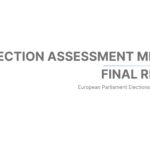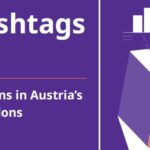
Austria,European Union,International
Monitoring of Election campaigning on social media networks
Election-Watch.EU contributed to a pilot project to monitor the usage of social media during electoral campaigns. Democracy Reporting International (DRI) led the project with contributions from MEMO 98 and the financial support of NEF-Civitates.
Under this project, five social media monitoring projects were carried out by teams from Election-Watch.EU (Austria), Lisbon University Institute (ISCTE – IUL) – Media Lab (Portugal), Political Accountability Foundation (Poland), Global Focus (Romania) and Gong (Croatia) during elections in the EU between 2019 and 2020.
Sources of information and tools for communication, which lay at the core of political competition have seen significant changes. Public broadcasters and independent media, in many EU Member States historically trusted for their impartiality and professional reporting on electoral processes, are challenged by the generation of an excessive quantity of information, limited quality checks, and the rapid circulation of news through social media networks and online platforms.
Social media has become integral part of our societies, and with it our electoral processes. Most voters, candidates, political parties and representatives of election management bodies associate with social media Facebook (founded in 2004), Twitter (founded 2006), possibly YouTube (founded 2005 and belonging to Google/Alphabet) as well as Instagram (founded in 2012) and popular among the younger generation. Globally some 50 per cent of the population (almost 3 billion users) are on social networks.
As described in Social Media Monitoring During Elections written by DRI, monitoring social media is far more complex than monitoring traditional media “with a myriad of actors and content” ranging from official democratic institutions (e.g. parties, politicians, media) and unofficial actors (e.g. individuals, political influencers, partisan groups).
The published report provides recommendations for the various electoral stakeholders and could serve as reference for advocacy work towards a more transparent and more accountable electoral campaigning via social media networks.
Austrian National Council Elections, facebook, Nationalratswahl 2019, social media and elections, social media monitoring, twitter, youtube
 Election Assessment Mission Report with good practice examples published
Election Assessment Mission Report with good practice examples published
 Supporting Electoral Reform in Liberia
Supporting Electoral Reform in Liberia
 Presenting Electoral Reform Paper at the Electoral Integrity Project Conference
Presenting Electoral Reform Paper at the Electoral Integrity Project Conference
 Social media monitoring of Austria’s general election campaign
Social media monitoring of Austria’s general election campaign
 How best to assess hybrid threats in elections?
How best to assess hybrid threats in elections?